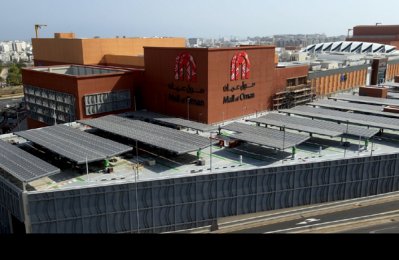Sharjah opens key tourism project in Khorfakkan
Sharjah government has announced the opening of a key tourism project in Khorfakkan area, Shees Park, a 11,362-sq-m development featuring a 25-m-high artificial waterfall and a 70-seat outdoor theatre in addition to a playing area and a barbecue area.
More Stories
HH Dr Sheikh Sultan bin Muhammad Al Qasimi, Supreme Council Member and Ruler of Sharjah has inaugurated a major tourism development project in Khorfakkan area, The Shees Park, a 11,362-sq-m development featuring a 25-m-high artificial waterfall and other key leisure facilities.
He also announced the launch of several cultural and tourism development projects including the Shees Rest House and heritage village Najd Al Maqsar during his visit to Khor Fakkan yesterday (October 15) to follow up on development projects in the various cities and regions of the emirate.
Dr Sheikh Sultan unveiled the commemorative plaque to mark the official opening of the Shees Park and later toured the facilities.
The park also boasts walkways and a playing area in addition to 32 shaded seats and an outdoor theatre that can accommodate 70 people as well as a barbecue area.
Dr Sheikh Sultan was then shown a documentary on the work done on the park, which was completed in eight months.
Beginning his visit from Shees, Dr. Sheikh Sultan was briefed on the plans of the Shees Rest House project located on Khorfakkan Road, which will be implemented in three phases in the northern and southern parts.
The rest house will include 60 shops selling honey, fruits, and vegetables in addition to nurseries and carpet outlets as well as food trucks. The project will also have more than 217 car parking lots.
The next stop for Dr Sheikh Sultan was Najd Al Maqsar village, which is one of the most important ancient human communities in Wadi Washi located within the historical city of Khorfakkan.
The village comprises 13 old houses dating back to nearly a century, which the people then used as a haven from the flow of torrents. Moreover, according to archaeological studies, rocks engraved with drawings of camels and horses dating back to 2,000 years BC were found in the area of Wadi Shai.
There is also historical evidence of the exodus of many people from Khor Fakkan to Wadi Shai, especially Najd Al Maqsar settlement, during the Medieval Period, at the time of the Portuguese colonisation of the region to seek shelter in its impenetrable mountains.
After being re-equipped with the latest facilities to receive visitors, the village will include 13 hotels in heritage style, a mosque, toilets, barbecue areas and outdoor sitting areas.-TradeArabia News Service
Projects
















